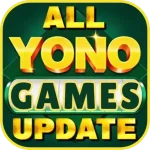Description
A Comprehensive Look at a Timeless Classic The Word Association Game is a cognitive exercise that focuses on impromptu word associations. Players alternately say words, and each player answers the previous word with the first word that comes to mind that is related. The relationships between language, cognition, and individual experiences are examined in this exercise. Because of its adaptability, the game can be played in a variety of contexts, such as social events, classrooms, & therapy sessions.
The origins of the game can be traced back to psychological studies, specifically those pertaining to cognitive processing. In order to examine subconscious feelings and thoughts, Sigmund Freud used word association techniques in his psychoanalytic practice. The game gains depth from this psychological underpinning, which makes it a useful tool for interpersonal understanding and self-reflection in addition to being an enjoyable pastime. The Word Association Game is useful for both structured learning activities & light entertainment.
It sheds light on people’s mental processes, linguistic relationships, and cultural associations. The game’s longevity as a favorite among various age groups and contexts can be attributed to its adaptability & simplicity. The Word Association Game is incredibly simple to play, so people of all ages can enjoy it. Players can first form a circle or take a comfortable seat so that everyone can hear one another well. The first word uttered by a player could be anything from “apple” to “freedom.”. After hearing the first word, the next player has to answer with the first word that springs to mind.
For example, if the first player says “apple,” the second player might say “fruit,” & the third player might say “banana.”. This chain keeps going, generating a lively verbal flow that may result in amusement and unanticipated connections. Although the fundamental rules are straightforward, players can add variations to improve the experience. For instance, they could set themes for each round, like emotions or colors, or set a time limit for responses to make it more difficult.
A further layer of complexity is added when players decide to keep track of words they have already used in order to prevent repetition. The game’s structure is flexible because it can be played individually or in teams. The fundamental idea of the game—promoting rapid thinking and impulsive word connections—remains the same regardless of the format selected. Beyond just being entertaining, playing the Word Association Game has numerous cognitive and social advantages.
Its capacity to improve vocabulary & verbal skills is among its greatest benefits. Players’ lexicon naturally grows & their linguistic agility improves as they are forced to think fast & express their ideas clearly. For kids who are still learning language, this is especially helpful because it allows them to experiment with new words and ideas in a fun setting. Also, this exercise can help adults improve their ability to think quickly and communicate more effectively. The Word Association Game promotes social interaction and fortifies bonds between players in addition to linguistic development.
By encouraging players to listen intently and answer intelligently, the game fosters teamwork & creative collaboration. As they work through their associations, players frequently find shared experiences or passions that strengthen their bonds. In therapeutic contexts or team-building activities, where developing trust and understanding is crucial, this feature of the game can be especially helpful. In the end, the Word Association Game acts as a bridge between people, encouraging both emotional and cognitive development.
Playing the Word Association Game effectively requires players to use a number of techniques that improve their responsiveness and associative thinking. Staying mindful and in the moment while playing is one useful strategy. Players can develop a greater awareness of their mental processes and create more meaningful connections by paying close attention to every word that is said.
The game becomes an exciting mental exercise as a result of the faster reactions & more imaginative associations made possible by this elevated state of awareness. Another helpful piece of advice is to increase one’s knowledge in a variety of areas. The more information players have access to, whether it be general knowledge, cultural allusions, or vocabulary, the more complex their associations will be.
Diverse media, like books, podcasts, or documentaries, can inspire new ideas and viewpoints that enhance gameplay creativity. Also, players shouldn’t be afraid to take chances with their associations because occasionally the most surprising connections result in the most interesting or entertaining game moments. One’s performance and enjoyment can be greatly improved by embracing spontaneity.
The Word Association Game can be a potent creative stimulant in addition to being a delightful diversion. Through promoting unrestricted thinking and dismantling mental obstacles, this game enables people to unleash their creative potential. Players frequently come up with original ideas that might not have come to them through traditional brainstorming techniques when they participate in word associations without self-censorship or judgment. Because it creates an atmosphere that encourages creativity, this unstructured method is a great resource for writers, artists, and innovators looking for ideas. Word association can be used in a variety of ways in creative processes.
Writers could use it, for example, as a warm-up before starting a project, letting their thoughts wander before concentrating on it. Word associations can help artists come up with ideas or themes for their next work, and they can use unexpected connections as a starting point for visual exploration. Word association sessions can also be used by groups working on cooperative projects to generate ideas together, guaranteeing that everyone’s opinions are heard and fostering an innovative environment. In the end, this game is a reminder that spontaneity and playfulness are often the best conditions for creativity. A Modern Take on the Classic: Reverse Association.
A well-liked variant is the “Reverse Association” game, in which players have to answer with a word that has the opposite meaning of the one that was just said. Players are challenged to think critically about language and semantics in addition to testing their vocabulary with this twist. Combining spontaneity and structure.
Setting distinct categories for every round—such as animals, nations, or emotions—and requiring players to maneuver within them while preserving spontaneity is another variation. To keep the action exciting and fast-paced, timed rounds that require players to react in a predetermined amount of time—say five seconds—can be added for those seeking a more competitive edge. Creative freedom and teamwork. Players may also decide to play in teams where points are given for original associations or astute connections that make other players laugh or be surprised. Everyone can enjoy this timeless classic in their own way thanks to these variations, which also keep the game interesting by accommodating varying skill levels and participant preferences.
For people looking for social interaction or mental stimulation, incorporating the Word Association Game into daily life can be both fun and advantageous. Setting aside time each day for a quick round with family or friends—possibly during breakfast or while commuting together—is one easy way to achieve this. This activity fosters relationships through shared creativity and laughter in addition to being a fun icebreaker. People can also play alone by writing down a word every day in a journal & then listing all related words that occur to them within a predetermined window of time.
Word association games that can be played alone or with people across distances are available on a variety of apps and online platforms for people who prefer digital interaction. Through online communities, these platforms frequently offer a range of challenges & difficulty levels to accommodate varying skill levels & foster social interaction. Word association can be integrated into everyday activities, such as structured games or informal conversations, to help people develop their cognitive capacities while savoring creative and connecting moments in their daily lives.
In summary, the Word Association Game is a versatile tool that improves language proficiency, strengthens social ties, ignites creativity, and provides countless variations for fun. It is much more than just a straightforward hobby. Through this timeless masterpiece, players can discover new ways to think and connect while also comprehending its benefits and mechanics and figuring out how to apply it to their everyday lives. Generation after generation has been enthralled with the Word Association Game, whether it is played informally among friends or as a serious tool for creativity & self-discovery.



